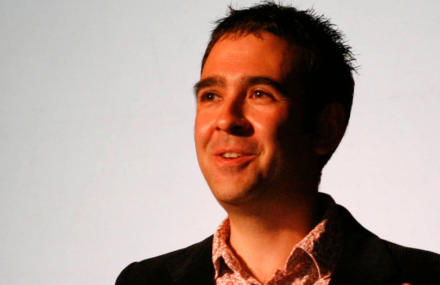Changing public demographics and a greater desire for the impact charities are making in society to be demonstrated means that the traditional charity model is “breaking down,” according to Joe Jenkins.
Speaking in a session at the IFC in the Netherlands, Joe Jenkins, director of fundraising and supporter engagement at the Children’s Society, said that the traditional charity model of beneficiaries and supporters is “broken”, and that the sector should instead be focusing on creating “social movements”.
Jenkins said that changing demographics in society and the differing ways in which millennials and baby boomers think of ‘charity’ means that the old model of the individual organisation as the ‘intermediary’ between donor and beneficiary is no longer effective.
“I think the old traditional model [of charity] is broken and not working. People now have different expectations about how they interact and engage with charities and see their role in civil society.”
Younger people expect something different
He said that older generations interacted with charity out of a sense of “duty”, but said newer generations are “much more engaged” and want to know what “the value and benefit is” of what a charity does, before giving to it.
“The traditional charity model sees the charity as the active agent, and the role of the active agent is to help passive beneficiaries – ‘the victim of a problem’. To help the charity in helping those passive beneficiaries are supporters and so the role of the charity is to engage those supporters to help the beneficiaries.
“For a number of years that has been the basic model, and that has been how we’ve looked at impact, but actually that model is fundamentally changing and increasingly what we’re looking at are social challenges.”
“The old model is breaking down, in which we have short term objectives where a supporter gives us some resources and trusts us to do a good job and then we go and help another group. Actually the whole realm of a charitable intermediary is breaking down and the communication of impact is fundamentally different.”
Jenkins said that the traditional model of charity was, in his view, simply no longer fit for purpose to help alleviate some of the issues that society is now facing in the UK, and around the world.
“A lot of the particular issues that we as a society are facing into at the moment, you couldn’t say that we’re winning on most of those measurements, as a sector. Each of the major challenges we’re facing, we’re struggling with and I think the old charity model isn’t effective, it isn’t commensurate with what’s required to make a difference”.
Impact reporting
Jenkins said that the future of the voluntary sector was in collective impact reporting from organisations operating in the same charitable ‘ecosystem’, and that no one organisation can solve a societal issue on its own.
“If you’re really serious as an organisation about achieving genuine social change then you have to know you’re not going to be able to do it on your own. Therefore you’re not going to achieve it on your own; and if you only ever measure your own impact then you’ll never know if you’re going to get to the genuine change in the world that we’re all aiming for.”
Related articles












